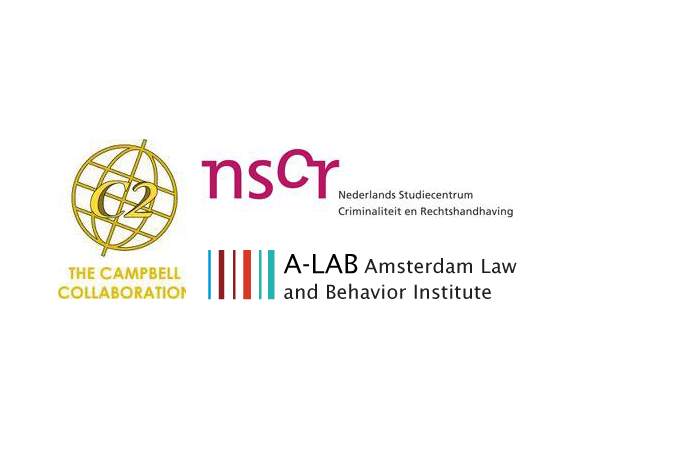Campbell policies seminar 14 maart – Meta-analysis for social research 15 maart

Campbell policies seminar 14 maart
Making Better Policies, Programmes and Practice for Better Lives: using evidence from systematic reviews NSCR, Agora 1, Vrije Universiteit, Amsterdam
1.30 – 5.00 pm March 14th 2016. Drinks reception at 4.30 pm.
Politicians and the public demand results from government and non-governmental policies and programmes. Yet most programmes remain untested with
little knowledge of what works, what doesn’t and why. Systematic reviews summarize the best available evidence on programme effectiveness.
At this half day seminar, national and international experts will discuss the role of systematic reviews in informing policy, using examples from social welfare,
education, crime and justice and international development.
Politicians and the public demand results from government and non-governmental policies and programmes. Yet most programmes remain untested with
little knowledge of what works, what doesn’t and why. Systematic reviews summarize the best available evidence on programme effectiveness. At this half day seminar, national and international experts will discuss the role of systematic reviews in informing policy, using examples from social welfare, education, crime and justice and international development.
To register, email: Machiel van der Werff (Mvdwerff@nscr.nl)
Meta-analysis for social research: a one day introductory workshop 15 maart
Where: NSCR, Initium, Vrije Universiteit
De Boelelaan 1077a (entrance Buitenveldertselaan), Amsterdam
Route Description
When: 9.00 am to 5.00 pm Tuesday, 15th March 2016
What is this workshop about?: There is growing interest amongst researchers and policy makers in rigorous evidence of ‘What Works’. Scientific research has addressed this interest through a growing number of experimental and non-experimental studies in different sectors. Randomized controlled trials conducted in the Netherlands include studies of promoting energy efficiency in the private sector, parenting interventions to tackle childhood obesity, promotion of breast feeding, and community-based mental health care.
However, there are limitations to the use of single studies to inform national policy. The study context may mean that the findings do not generalize to other settings. Or small sample size may lead to an incorrect finding of no programme effects. Systematic reviews overcome these limitations by identifying and synthesizing all relevant, rigorous evidence on a topic. Meta-analysis, the statistical technique used to combine effect size estimates from different studies, is an important part of most systematic reviews.
This workshop provides a one-day, hands on, introduction to meta-analysis. It will provide the statistical basis for meta-analysis, take participants through examples of conducting meta-analysis and how to interpret the findings, and illustrate the role of sub-group analysis and meta-regression in understanding programme effects. The analysis will be conducted using R, which is free to download here.
About the presenter: Bernd Weiss is visiting professor of empirical social research at the University of Duisburg-Essen, Institute of Sociology, and co-Chair of the Campbell Collaboration Training Group. His research interests focus on methods of empirical research in sociology (especially meta-analysis), family sociology, medical sociology, juvenile delinquency and educational sociology.
Who is the workshop for?: The workshop is for scientific researchers from any field, especially those interested in assessing the effects of social and economic policies and programmes. Participants should have a knowledge of statistics (hypothesis testing, testing difference in means and proportions, multiple regression etc.) and familiarity with statistical software, preferably either R or Stata. PhD students will be admitted if space allows. The workshop shall be conducted in English. Participants should bring their own laptops with R installed.
Costs: € 20. Up to thirty places are available, with registration on a first come-first serve basis.
Register: Machiel van der Werff (Mvdwerff@nscr.nl) or Tamara Dijks (Tdijks@nscr.nl).
Info: Peter van der Laan (pvanderlaan@nscr.nl; p.h.vander.laan@vu.nl)
Deel dit artikel
Actuele berichten

